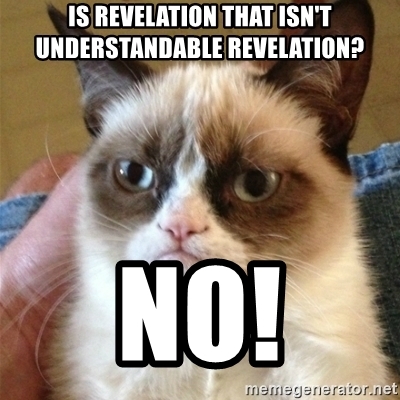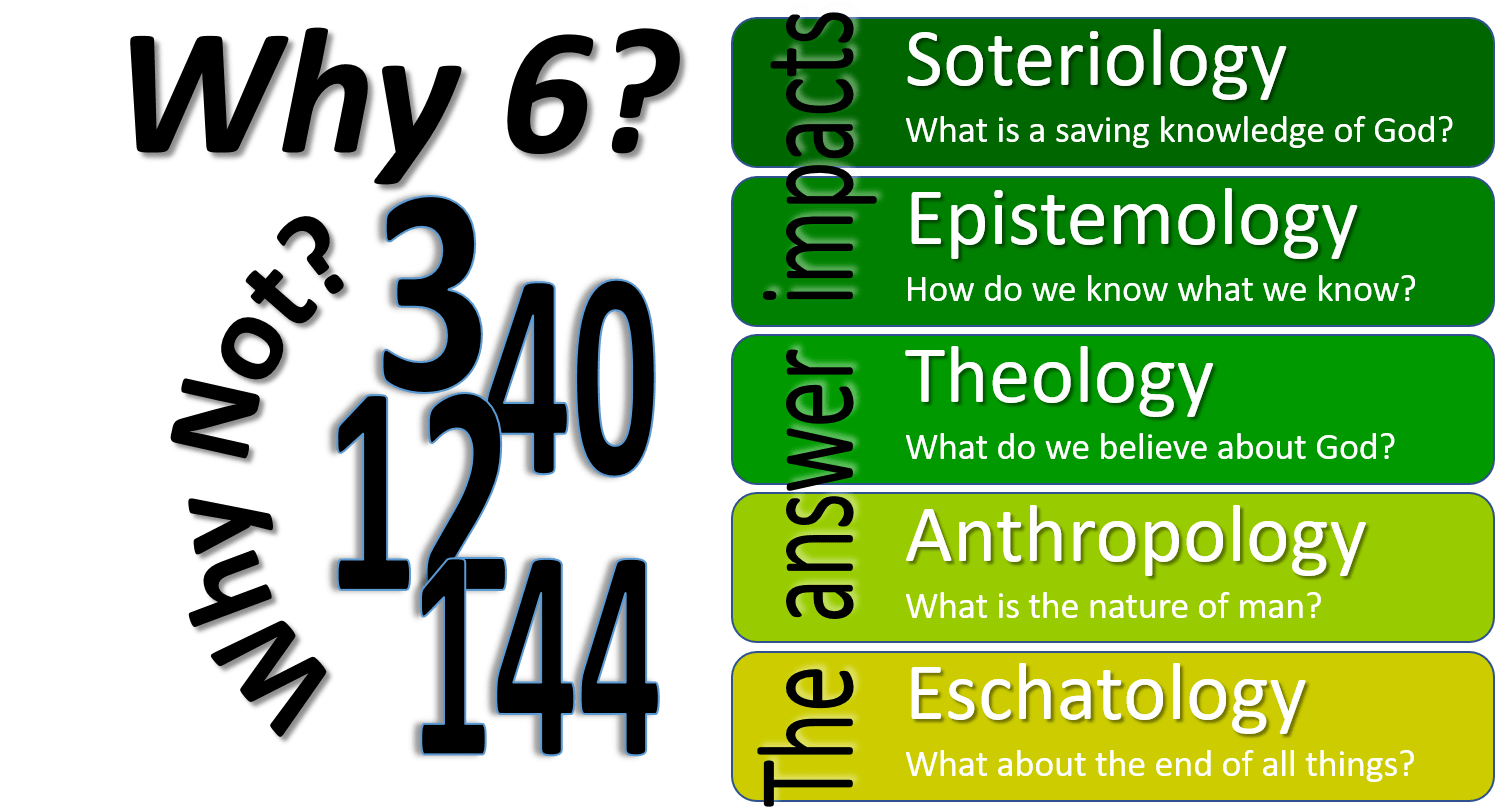There is a passage of Scripture that proves that God speaks in such a way that it is impossible to know what He meant. Theologians have debated and postulated, proposed and speculated, but to no avail. We will never agree on what God meant when He gave that particular passage. Christians will simply have to live knowing we are unable to determine what God meant. We are hopelessly confused on what the truth must be. More importantly, we must now be concerned that other passages we thought were clear may not be clear. The ones we thought we understood, we must now give some width in their interpretation just because we cannot know what God has said in that one passage.
Except, not.
There is no collection or Scriptures, or any single verse for which this is true. And, it cannot be true. If there is one Scripture that cannot be known, then there must be others. The doctrine of perspicuity of Scripture, an essential part of orthodoxy, affirms that Scripture can be understood. Consider this: Why would God inspire Scripture, why would He “breath out” revelation of Himself, go through the work of giving Truth, and then either make it unknowable or simply not accessible by the very people He gave it to? Is revelation that isn’t comprehensible really revelation? The answer is, as Grumpy Cat would say, “no”.

A recent exchange on Facebook reveals one of the modern struggles in the Christian faith. Can we understand the Word of God? It seems an increasing number of Christians are affirming we cannot. For them, God’s Word contains things that cannot be known. This view of Scripture limits us to never really knowing what God said. It limits understanding to a good try, but always missing, so that we have to accept multiple meanings for certain “hard to interpret” scriptures. The Process Theologians, including Openness Theologians, are an extreme end of this type of thinking. To them, God doesn’t particularly know things Himself. Therefore, anything He has said about the future can’t be clear. Away from this extreme view, is the confession that God knows, but for some reason or another, what He has told us is too difficult to be sufficiently understood. Or, that He doesn’t really want us to know, and therefore clouds what He says with complexity. And, because of this “un-understandability”, we have multiple meanings from Scripture.
Not multiple applications of a clear truth. Multiple meanings.
This “too difficult to be understood” label isn’t applied consistently. Some choose to apply it to the first eleven chapters of Genesis, while others will apply it to eschatology passages. More and more Christians are applying it to the revelation of God’s creation of gender, and the proper and glorious purpose of sex. And, of course, there are those who apply it everywhere. With the exception of that the single phrase, “don’t judge”. That one is pretty clear to them.
When we, particularly as Christians, have worked to be humble and extend grace, we’ve moved from a position of “I as a person may not understand” to a position of “we as humans can never understand.” This may come from a correct desire to cultivate peace and grace within the body of Christ. We obediently work toward unity. And we’ve done so by “agreeing to disagree”. Not because Scripture itself contains any indication that it can have multiple correct meanings that contradict one another. We simply desire fellowship more than we desire truth. And, for some reason, we think truth is antithetical to fellowship.
Either Genesis is historical narrative or it is allegorical shadowing. It cannot be both. Either the millennium is a real physical kingdom, or it is a spiritual, non-real process. It cannot be both. Either God is sovereign in salvation or mankind controls his own salvation. Both cannot be correct.
The doctrine that Scripture is understandable affects every other area of theology. And, proper unity, real unity, comes from a correct theology. Real unity comes from having the right doctrine.
There are many excellent resources to understand the perspicuity of Scripture. Let me recommend those and the following:
Understand, O dullest of the people! Fools, when will you be wise?
Psalms 94:8
Know therefore and understand that from the going out of the word to restore and build Jerusalem to the coming of an anointed one, a prince, there shall be seven weeks. Then for sixty-two weeks it shall be built again with squares and moat, but in a troubled time.
Daniel 9:25
How can God command understanding if understanding that includes sufficient comprehension were not possible? The answers is, He cannot. It would be self-contradictory.
He said to them, “Have you not read what David did when he was hungry, and those who were with him:
Matthew 12:3
Or have you not read in the Law how on the Sabbath the priests in the temple profane the Sabbath and are guiltless?
Matthew 12:5
We read the words of Jesus, and in our modern minds attuned to being non-offensive, interpret the phrase, “have you not read” as simply a transition. It’s a gentle introduction. Except that it isn’t. It is a rebuke. He was speaking to the learned, the intellectual leadership. They prided themselves on having read the Scriptures. It defined them. So, when Jesus begins with, “have you not read”, it is a rebuke. They should have known because God had given them clear revelation of the very truth they were trying to trap Jesus with. They had developed a system of theology that kept them from correctly understanding the truth God had clearly, unambiguously placed in His Word.
Genuine humility to God’s Word confesses that He has placed truth there for a reason, and He intends for that truth to be accessible to the intended target of the revelation. It’s not easy. To find the truth always requires the work of the Holy Spirit as we work hard to understand, using other Scriptures and the fuller Body of Christ.
Perspicuity of Scripture Resources:
Larry D. Pettegrew Professor of Theology, The Master’s Seminary, The Perspicuity of Scripture










 Scan this QR Code with your phone or mobile device to be taken directly to the broadcast.
Scan this QR Code with your phone or mobile device to be taken directly to the broadcast.